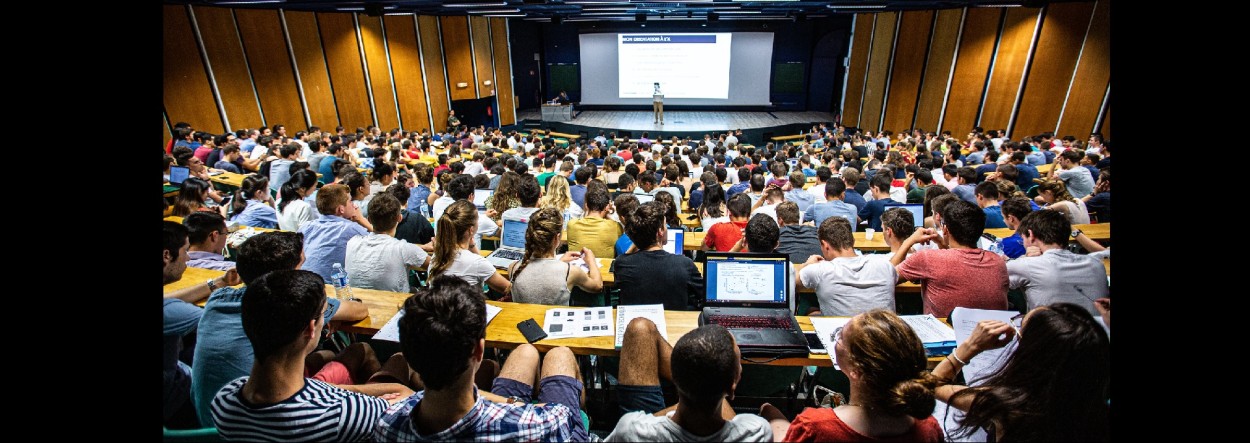A new course on sovereignty and defense issues for École Polytechnique’s students

Founded 230 years ago to meet the needs of the fledgling French Republic for top civil and military leaders with cutting-edge scientific and technical training, École Polytechnique has constantly adapted its programs and curricula to the changes that have taken place since its origins.
This has been done by always taking to the highest degree the requirements linked to its dual identity, both scientific and military, which makes it unique.
The new “Global Equilibria, Sovereignty and Defense Issues” course has been launched with the start of classes for the X2023 graduating class, following their initial human and military training. It will enable them to acquire and master the fundamental concepts of international relations and defense studies.
“École Polytechnique, under the supervision of the French Ministry of the Armed Forces, is committed to French sovereignty, and trains engineers of excellence capable of embracing the major challenges of their time. The 'Global Equilibria, Sovereignty and Defense Issues' course will give them a systemic approach to thinking critically and analytically about past and present global equilibria, to grasping the defense issues facing France and Europe today, and to understanding the role of science and technology in these sovereignty issues", emphasized Laura Chaubard, Director General and Acting President of École Polytechnique.
Designed around 8 thematic sessions, this lecture course is led by Marine Guillaume and Amélie Férey, professors at École Polytechnique. Led by leading experts, these sessions will range from an introduction to fundamental concepts, to the roles of international organizations today, to the impact of new technologies on sovereignty. Multi-disciplinary, these sessions will draw on several areas of the social sciences, including comparative politics, international relations, political sociology and economics.
Founded 230 years ago to meet the needs of the fledgling French Republic for top civil and military leaders with cutting-edge scientific and technical training, École Polytechnique has constantly adapted its programs and curricula to the changes that have taken place since its origins.
This has been done by always taking to the highest degree the requirements linked to its dual identity, both scientific and military, which makes it unique.
The new “Global Equilibria, Sovereignty and Defense Issues” course has been launched with the start of classes for the X2023 graduating class, following their initial human and military training. It will enable them to acquire and master the fundamental concepts of international relations and defense studies.
“École Polytechnique, under the supervision of the French Ministry of the Armed Forces, is committed to French sovereignty, and trains engineers of excellence capable of embracing the major challenges of their time. The 'Global Equilibria, Sovereignty and Defense Issues' course will give them a systemic approach to thinking critically and analytically about past and present global equilibria, to grasping the defense issues facing France and Europe today, and to understanding the role of science and technology in these sovereignty issues", emphasized Laura Chaubard, Director General and Acting President of École Polytechnique.
Designed around 8 thematic sessions, this lecture course is led by Marine Guillaume and Amélie Férey, professors at École Polytechnique. Led by leading experts, these sessions will range from an introduction to fundamental concepts, to the roles of international organizations today, to the impact of new technologies on sovereignty. Multi-disciplinary, these sessions will draw on several areas of the social sciences, including comparative politics, international relations, political sociology and economics.
Separately in February, École polytechnique announced the launch, as of the start of the 2024 academic year, of a course dedicated to sustainability on the theme of energy and ecological transition, aimed at 2nd year students of the ingénieur polytechnicien program.
 Support l'X
Support l'X